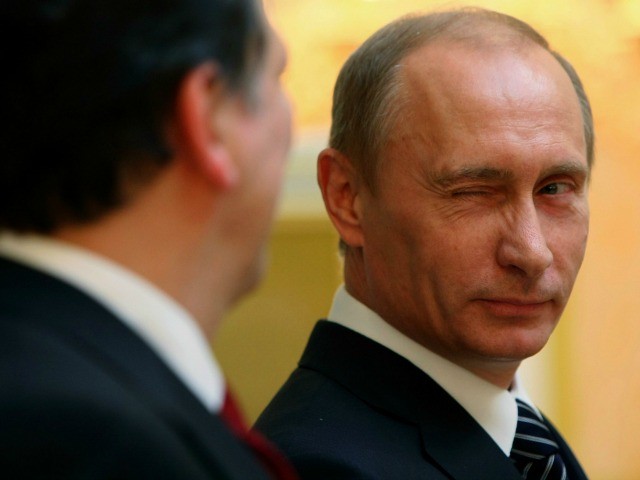
This week saw escalating rounds of ceremonial sanctions by the U.S. and European Union (EU) against Russia over its annexation of the Crimea, followed by escalating ceremonial sanctions by Russia against the U.S. and EU. But as President Obama looked petulant, Russian President Vladimir Putin had a huge Cheshire-Cat grin as he welcomed two million residents of the Crimea and their massive off-shore natural gas rights into Mother Russia.
As Putin was formally signing legislation passed by the Russian Duma to absorb Crimea, Barack Obama used his pen to sign Executive Orders sanctioning SMP and Russia Bank from accepting Visa and MasterCard transactions. Obama chose SMP because it is controlled by Boris and Arkady Rotenbergs, Putin’s judo sparring partners and owners of a company that is a major supplier to Russia’s Gazprom, the world’s biggest gas exporter. Putin intends to have Gazprom develop the off-shore gas reserves of Chornomornaftohaz and Ukrtransgaz, two firms nationalized earlier this week by the Crimean parliament. By having Russia acquire Crimea, Putin gained control of about 70% of Ukraine’s Black Sea off-shore oil and gas drilling rights.
ExxonMobil Corporation was intent on breaking Gazprom’s dominance in supplying over 50% to 100% of the natural gas usage for 18 countries in Europe, including Germany and the Ukraine. In 2012, ExxonMobile discovered the Domino Field in neighboring Romania, whose gas reserves are so large that the nation expects to soon become a natural gas exporter. ExxonMobile Corporation quickly licensed from Ukraine the rights to drill in the Skifska tract off-shore from the Crimean Peninsula and partnered with Royal Dutch Shell Plc to spend $735 million drilling two wells about 50 miles off Crimea’s southwestern coast. ExxonMobil also signed a $10 billion liquid natural gas (LNG) deal with the nation of Qatar to supply Europe.
But according to Chris Weafer of Macro Advisory in Moscow, “Exxon and Shell are now in a legal limbo.” They pursued an “exploration deal with a government which may soon no longer have jurisdiction over the region.” Although Exxon said the company “isn’t choosing sides in the dispute,” Gazprom has no interest in partnering with a competitor.
The Crimea is a lush region known for its palm-fringed seafront boulevards and rocky hills, but it imports 85% of its electricity, 90% of its drinking water, and most of its food. Putin has committed to continuously send 30 to 40 billion rubles ($1 billion) in subsidies for the Crimea, including the commitment to lifting 560,000 Crimean pensioner payments from the Ukrainian average of $150 a month to Russia’s minimum of $180. Crimean workers also expect that the monthly wage rate will rise over time from $270 as Ukrainians to the average of $660 as Russians.
But subsidies for Crimea are a fraction of the $29 billion in annual subsidies and debt relief President Obama and European Union (EU) leaders initially claimed they would pay to support Ukraine’s “people’s revolution.” U.S. Secretary of State John Kerry recognized the rebel government on February 21st and pledged $1 billion of support; while the EU offered to join with the International Monetary Fund in an aid package worth $27 billion over seven years. But when it came time for the U.S. to contribute the cash last week, Congress objected and then left for vacation.
Vladimir Putin is the most popular Russian leader in the last 30 years with an approval rating of 71.6%. According to my sources, Russians see the same strengths of courage and strong moral purpose in Putin that they believe President Ronald Reagan used to lead the economic rebirth of America that overwhelmed the Soviet Union. They see Barack Obama as an updated Mikhail Gorbachev; a man who talked a good game but whose economic policies led to foreign weakness and internal collapse. They believe Putin’s addition of Crimea’s substantial gas reserves are worth tens of billions of dollars that will economically strengthen Russia.
The author welcomes feedback @ chriss@chrissstreetandcompany.com.
Chriss Street is teaching microeconomic at University of California, Irvine this spring from March 31 – June 8, 2014. Call Student Services at (949) 824-5414 or visit http://unex.uci.edu/courses to enroll!

COMMENTS
Please let us know if you're having issues with commenting.